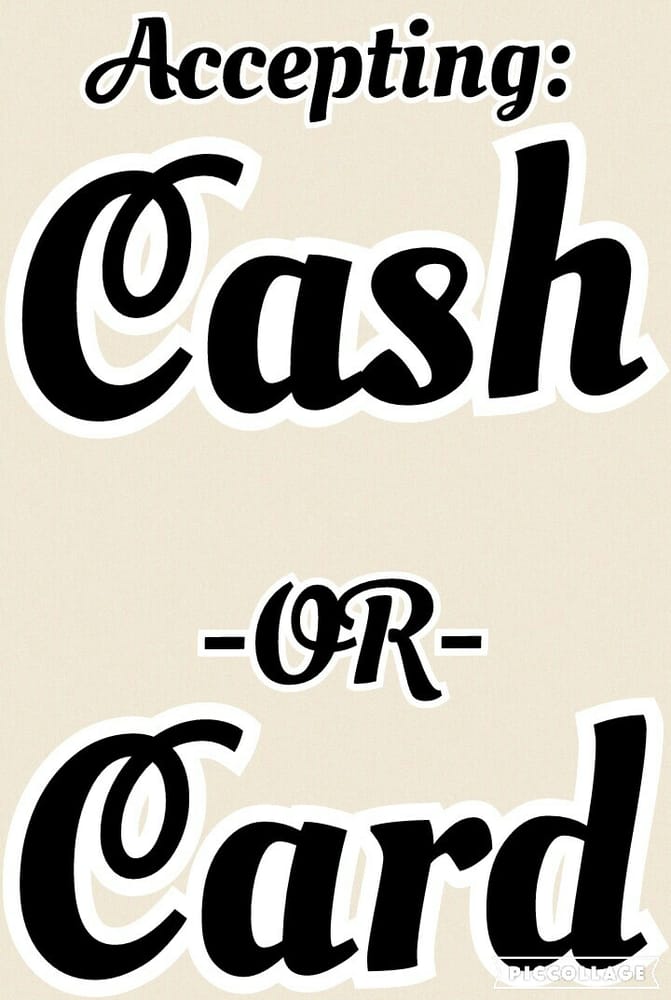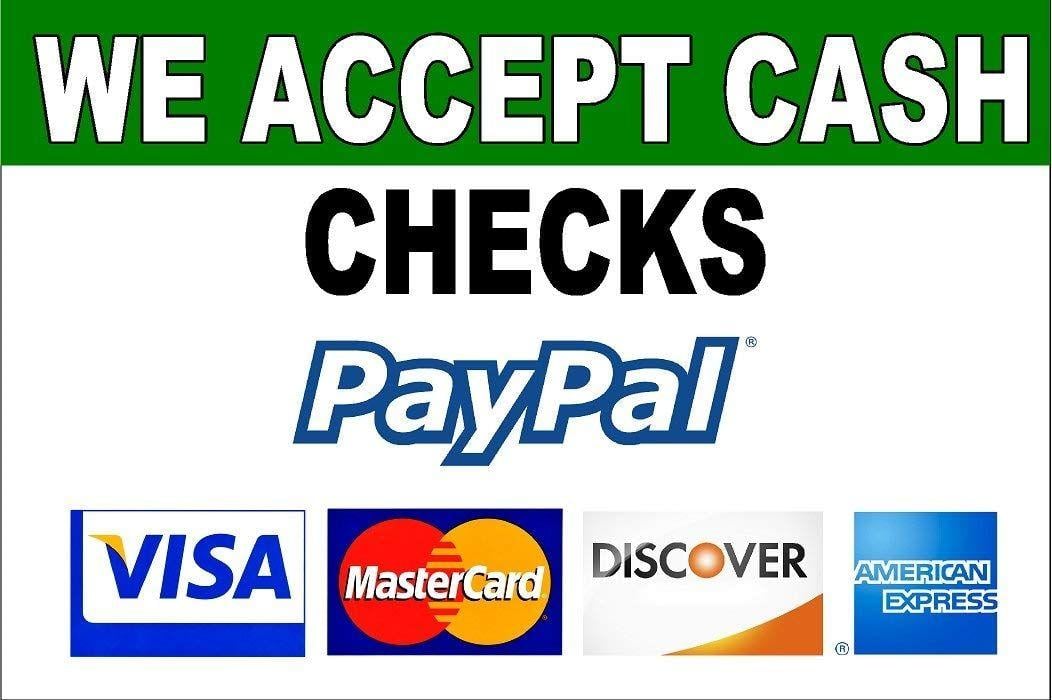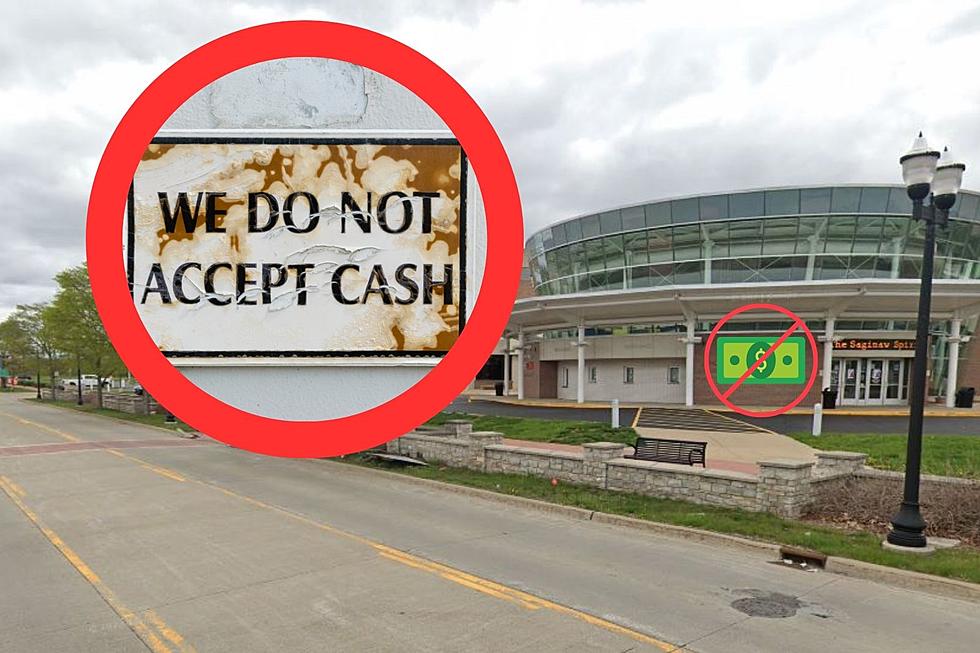Is It Legal To Not Accept Cash? Unpacking The Cashless Debate
Have you ever walked into a store, pulled out your crisp $20 bill, and been told they don’t accept cash? If this has happened to you, you’re not alone. The rise of cashless businesses has sparked heated debates across the globe. Is it legal to not accept cash? Well, buckle up, because we’re diving deep into this controversial topic, and trust me, it’s more complicated than you think.
Let’s start with the basics. Cashless businesses are popping up everywhere, from trendy coffee shops in Manhattan to tech-savvy boutiques in London. While some people love the convenience of digital payments, others argue that refusing cash is discriminatory and, in some cases, even illegal. But before we jump into the legal jargon, let’s take a moment to understand why this issue matters so much.
Imagine being someone who doesn’t have access to a bank account, a credit card, or a smartphone. How would you feel if every store in your neighborhood suddenly stopped accepting cash? This isn’t just a hypothetical scenario—it’s a reality for millions of people worldwide. So, is it legal to not accept cash? Let’s find out.
Read also:Champion Auto Sales Amp Auto Repair Llc Your Ultimate Onestop Shop For All Things Automotive
Before we dive into the nitty-gritty, here's a quick table of contents to help you navigate this cashless conundrum:
- What Does the Law Say?
- The Cashless Revolution: Why It’s Happening
- Who Loses When Cash is Banned?
- Is It Legal to Not Accept Cash in the U.S.?
- Cashless Policies Around the World
- Exceptions to the Rule
- How Businesses Navigate the Cashless Debate
- The Pros and Cons of Going Cashless
- Legal Challenges Facing Cashless Businesses
- The Future of Cashless Payments
What Does the Law Say?
When it comes to the legality of refusing cash, the answer isn’t as straightforward as you might think. In the U.S., for example, there’s no federal law that mandates businesses to accept cash. However, some states and cities have passed laws to protect consumers who rely on cash. So, while it might be legal in one state to refuse cash, it could be illegal in another. Confusing, right?
According to the Federal Reserve, businesses are under no obligation to accept cash as a form of payment. The catch? This only applies at the federal level. States and municipalities can—and often do—impose their own rules. For instance, cities like New York, Philadelphia, and San Francisco have banned businesses from refusing cash outright.
Why the Law Varies by Location
So, why does the law differ so much from place to place? It all boils down to local priorities. In cities with high levels of poverty or unbanked populations, lawmakers are more likely to push for cash acceptance to ensure everyone has access to essential goods and services. On the flip side, in areas where most people have access to digital payment methods, the push for cashless policies tends to be stronger.
The Cashless Revolution: Why It’s Happening
Let’s face it—cash is kind of old-school. With the rise of contactless payments, mobile wallets, and cryptocurrency, more and more businesses are jumping on the cashless bandwagon. But why exactly are they making this switch? Here are a few reasons:
- Security: Cashless businesses don’t have to worry about theft or robbery, making them safer for both employees and customers.
- Speed: Digital transactions are faster than counting out bills and coins, which means shorter lines and happier customers.
- Cost Savings: Handling cash can be expensive for businesses. From ATM fees to cash counting machines, the costs add up.
- Convenience: Let’s be real—most of us have our phones on us at all times. Why bother with cash when you can just tap and go?
Is the Cashless Trend Here to Stay?
While the cashless trend is definitely gaining momentum, it’s not without its challenges. As we’ll explore later, there are significant ethical and legal considerations that businesses need to weigh before going cashless. But one thing’s for sure: the demand for digital payments isn’t slowing down anytime soon.
Read also:Top Tv Shows With Hamza Sohail A Comprehensive Guide
Who Loses When Cash is Banned?
While the benefits of going cashless might seem obvious to some, it’s important to consider who gets left behind in this digital revolution. According to a 2021 study by the Federal Reserve, approximately 5.4% of American households are unbanked, meaning they don’t have access to a traditional bank account. For these individuals, cash is often the only viable option for making purchases.
But it’s not just the unbanked who suffer. Low-income families, elderly individuals, and those living in rural areas may also struggle to adapt to a cashless world. Without access to smartphones or reliable internet, these groups could find themselves excluded from basic services like groceries, transportation, and healthcare.
The Digital Divide
The digital divide refers to the gap between those who have access to modern technology and those who don’t. In the context of cashless payments, this divide can have serious consequences. For example, a single mother working two jobs might not have time to set up a digital wallet, or an elderly person might not feel comfortable using a smartphone to pay for their groceries. These are just a few examples of how the cashless movement can disproportionately impact marginalized communities.
Is It Legal to Not Accept Cash in the U.S.?
Now, let’s get down to the nitty-gritty. Is it legal to not accept cash in the U.S.? As we mentioned earlier, there’s no federal law requiring businesses to accept cash. However, several states and cities have taken steps to address this issue. Here’s a breakdown of the current laws:
- New York City: Businesses are prohibited from refusing cash unless they have a valid reason, such as a lack of physical infrastructure to handle it.
- Philadelphia: All businesses must accept cash unless they can prove it’s impractical to do so.
- San Francisco: Businesses are required to accept cash unless they fall under specific exemptions, such as gas stations or vending machines.
It’s worth noting that these laws are still relatively new, and their effectiveness is still being debated. While some argue that they protect vulnerable populations, others believe they stifle innovation and hinder economic growth.
What About Other Countries?
The U.S. isn’t the only country grappling with this issue. In Sweden, for example, cashless payments have become the norm, with many businesses refusing to accept cash altogether. However, this shift has sparked concerns about financial inclusion and consumer rights. Meanwhile, in countries like India and Kenya, mobile payments have revolutionized the way people conduct transactions, offering a glimpse into the future of money.
Cashless Policies Around the World
While the U.S. debates the legality of cashless businesses, other countries are forging ahead with their own policies. Here’s a quick look at how different regions are approaching the cashless movement:
- Europe: Many European countries, such as Sweden and Denmark, have embraced cashless payments, with some even experimenting with digital currencies.
- Asia: In countries like China and South Korea, mobile payments dominate the market, with platforms like WeChat Pay and KakaoPay leading the charge.
- Africa: Mobile money services like M-Pesa have transformed the financial landscape in countries like Kenya, providing millions of unbanked individuals with access to financial services.
Each region has its own unique challenges and opportunities when it comes to going cashless. While some countries have fully embraced the trend, others are taking a more cautious approach, balancing innovation with inclusivity.
Global Challenges
One of the biggest challenges facing the global cashless movement is ensuring that no one gets left behind. In many developing countries, access to digital payment systems is still limited, leaving large portions of the population without a viable alternative to cash. To address this, governments and private companies are working together to develop affordable and accessible payment solutions.
Exceptions to the Rule
While the legality of refusing cash varies by location, there are certain exceptions to the rule. For example, businesses that operate entirely online or sell digital goods are typically exempt from cash acceptance requirements. Similarly, vending machines, parking meters, and other automated systems are often allowed to operate cash-free.
Another important exception is businesses that have legitimate security concerns. For instance, a small convenience store located in a high-crime area might argue that accepting cash poses a risk to its employees. In such cases, local authorities may grant exemptions on a case-by-case basis.
Gray Areas
As with any legal issue, there are plenty of gray areas when it comes to cashless policies. For example, what happens if a business refuses cash but offers a discount for digital payments? Is this considered discriminatory, or is it simply a marketing strategy? These are the kinds of questions that lawmakers and regulators are still grappling with.
How Businesses Navigate the Cashless Debate
For businesses considering a move to cashless operations, navigating the legal landscape can be tricky. Here are a few tips to help them stay on the right side of the law:
- Know the Local Laws: Before going cashless, businesses should familiarize themselves with the laws in their area. This includes both state and municipal regulations.
- Communicate Clearly: If a business decides to go cashless, it should clearly communicate this policy to customers. This might include posting signs, updating their website, or training staff to explain the policy.
- Offer Alternatives: To avoid alienating cash-only customers, businesses can consider offering alternative payment methods, such as prepaid cards or gift cards.
By taking these steps, businesses can minimize the risk of legal challenges while still reaping the benefits of going cashless.
Building Trust with Customers
In addition to legal considerations, businesses need to think about how their cashless policies will impact customer trust. Transparency and communication are key to maintaining strong relationships with customers, especially in a rapidly changing payment landscape.
The Pros and Cons of Going Cashless
Now that we’ve covered the legal aspects, let’s take a step back and look at the bigger picture. What are the pros and cons of going cashless? Here’s a quick rundown:
Pros:
- Increased Efficiency: Digital payments are faster and more convenient than cash transactions.
- Improved Security: Cashless businesses are less vulnerable to theft and fraud.
- Cost Savings: Businesses can save money on cash handling and transportation fees.
Cons:
- Exclusion of Vulnerable Populations: Cashless policies can disproportionately impact low-income individuals, the elderly, and the unbanked.
- Technical Issues: Digital payment systems can be prone to outages, hacking, and other technical problems.
- Privacy Concerns: Some people are uncomfortable with the idea of their financial transactions being tracked and stored digitally.
As with any major change, there are trade-offs to consider. While going cashless offers many benefits, it’s important to weigh these against the potential downsides.
Legal Challenges Facing Cashless Businesses
Despite the growing popularity of cashless businesses, there are still plenty of legal challenges to overcome. One of the biggest hurdles is ensuring compliance with local and federal laws. As we’ve seen, these laws can vary significantly from place to place, making it difficult for businesses to navigate the regulatory landscape.
Another challenge is addressing concerns about financial inclusion. As more businesses go cashless, there’s a risk that vulnerable populations could be left behind. To mitigate this, some lawmakers have proposed measures such as requiring businesses to accept alternative forms of payment, like prepaid cards or mobile wallets.
Future Legal Developments
As the cashless movement continues to gain momentum, it’s likely that we’ll see more legal challenges and regulatory changes in the coming years. Businesses that stay ahead of the curve by understanding and adapting to these changes will
Article Recommendations


